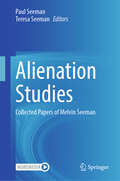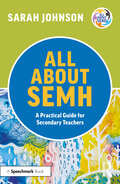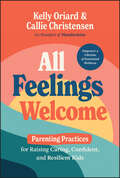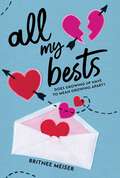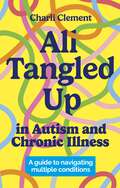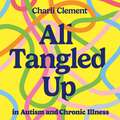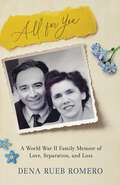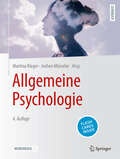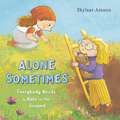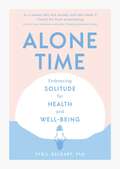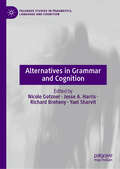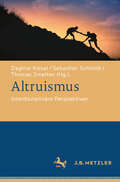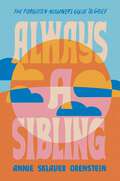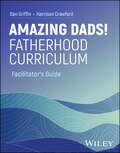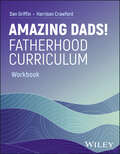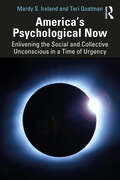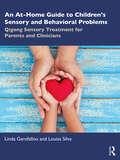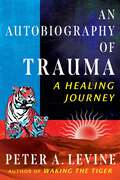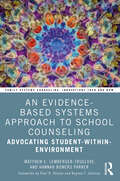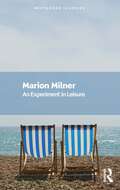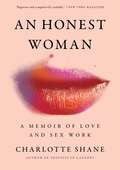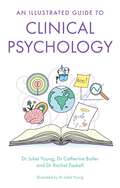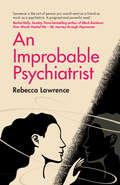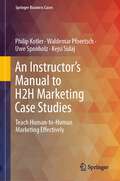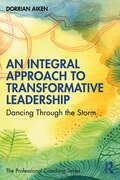- Table View
- List View
Alienation Studies: Collected Papers of Melvin Seeman
by Paul Seeman Teresa SeemanThis book compiles cross-cultural studies on alienation undertaken by the late Dr. Melvin Seeman, including relevant historical and theoretical contexts and analyses related to the ongoing development of the alienation model and its counterparts in the behavioral sciences. Chapters track the development of this model across a half-century of interdisciplinary research, encompassing various research partnerships over the years.
All About SEMH: A Practical Guide for Secondary Teachers (All About SEND)
by Sarah JohnsonAll About SEMH is an accessible and informative guide for secondary school teachers, designed to increase their understanding of social, emotional and mental health needs, and to enhance their toolkit with practical, evidence-informed strategies to support learners in their care. The book unpicks key terminology and debunks myths and misconceptions, enabling teachers to more easily understand some of the challenges for learners with SEMH needs. It then explores a range of key areas including anxiety, depression, bereavement, obsessive-compulsive disorder and self-harm, and focuses on practical strategies and adaptations that can be made in every classroom. All About SEMH includes: A comprehensive introduction to social, emotional and mental health needs and the surrounding terms and policies. Practical strategies tailored to different conditions to help provide targeted support to secondary school learners. Case studies and worked examples to illustrate points in the book, supporting behaviour recognition and developing reader understanding. The difference between children’s behaviour at home and at school are examined, and the voices of parents of children with SEMH are woven throughout. Guidance on safeguarding and when to ask for additional support regarding concerns such as drug abuse or child exploitation. Easy to dip in and out of chapters with signposting to further research, resources and support. This accessible guide is a valuable resource to empower secondary educators, increasing their knowledge and understanding of SEMH, and providing a range of practical strategies to support every learner in their class. It will be essential reading for all secondary school educators, SENCOs and parents who are supporting children with SEMH needs.
All Feelings Welcome: Parenting Practices for Raising Caring, Confident, and Resilient Kids
by Kelly Oriard Callie ChristensenA proven framework for helping children become caring, confident, and resilient from the makers of Slumberkins In All Feelings Welcome, Kelly Oriard and Callie Christensen, early childhood experts and founders of the Slumberkins brand of characters supporting emotional learning, provide accessible products and tools for empowering kids to build lifelong emotional intelligence. You'll discover how to approach building connections that will have lasting, positive impacts throughout your child's life. Then, you'll follow along with an easy-to-use framework that you can use in your day-to-day to build connection, community, and togetherness—the key ingredients of emotional wellbeing as our kids grow. Written for parents and caregivers, All Feelings Welcome helps you support children in noticing, naming, and welcoming all feelings through the everyday parenting moments and in the more challenging times when you and your child need support. This book is packed with practical techniques that you can share with all the important people in a child's early emotional learning journey to build confidence and influence their wellbeing for a lifetime. Support kids' emotional wellbeing by fostering meaningful connections with the adults in their lives Contribute to a more kind and caring future world by raising children who are in touch with their emotions Get ideas for helping kids identify, name, accept, and respond to their feelings Build self-awareness as a parent or caregiver, while supporting the development of a positive self-concept for your child Parents, caregivers, and anyone with a stake in our kids' futures will love the inspiration and practical tools in All Feelings Welcome.
All My Bests
by Britnee MeiserIn the tradition of Hello, Goodbye, and Everything in Between, this smart and emotional romance told through playlists and memories follows two young teens struggling to hold onto each other as their friendship changes.Starting high school brings big changes for Immie and Jack, who&’ve been everything to each other ever since Jack crashed his skateboard into Immie&’s yard when they were seven years old. All of a sudden, a game-winning goal catapults Jack into star status with the soccer team, and Immie is meeting new girl friends whose questions are making her wonder about the identity of her father for the first time in her life. And amidst all of this, they&’re both realizing their feelings for each other might run deeper than they thought. Can their friendship—and the promise of something more—weather the storm that is growing up?
All Tangled Up in Autism and Chronic Illness: A guide to navigating multiple conditions
by Charli ClementIn this ground-breaking debut, Charli Clement combines their own experiences alongside unique short profiles from individuals with chronic illness, to provide an intimate and insightful look at the complexities of living as an autistic and chronically ill person. From navigating your diagnosis and healthcare, learning how to manage pain and your own sensory needs to dealing with ableism, medical misogyny and transphobia, Clement offers practical advice and delves into the unique challenges faced by individuals living in this intersection.With a focus on the unique neurodivergent experience and an exploration into disability pride and joy 'All Tangled Up in Autism and Chronic Illness' is a necessary and empowering resource for autistic and chronically ill people as well as for family members, friends, and healthcare professionals.
All Tangled Up in Autism and Chronic Illness: A guide to navigating multiple conditions
by Charli ClementIn this ground-breaking debut, Charli Clement combines their own experiences alongside unique short profiles from individuals with chronic illness, to provide an intimate and insightful look at the complexities of living as an autistic and chronically ill person. From navigating your diagnosis and healthcare, learning how to manage pain and your own sensory needs to dealing with ableism, medical misogyny and transphobia, Clement offers practical advice and delves into the unique challenges faced by individuals living in this intersection.With a focus on the unique neurodivergent experience and an exploration into disability pride and joy 'All Tangled Up in Autism and Chronic Illness' is a necessary and empowering resource for autistic and chronically ill people as well as for family members, friends, and healthcare professionals.
All for You: A World War II Family Memoir of Love, Separation, and Loss
by Dena Rueb RomeroEmil, a Jewish man in 1930s Germany, loves Deta, a Lutheran, but Nazi racial purity laws forbid their marriage. Desperate to find a place where their love can survive, they must separate to get away. Deta leaves for England, but Emil has to overcome red tape, resistance from his aging parents, and his own ambivalence before he can embark for America. With only telegrams and letters from Deta to sustain him, he does all he can to bring her and his family to America. But the clock is ticking as the war breaks out and the Nazis tighten their stranglehold. From the heartbreaking news of November 10, 1938 (Kristallnacht) to the horrific revelations after the German surrender in 1945, Emil&’s story runs the course of the war. Can he make his way in this new world? Will he be reunited with his beloved Deta? And will he ever see his family again? Told by Emil&’s daughter with the help of letters and historical documents, All for You is a true story about love overcoming despair and the impact the Holocaust continues to have on the rising generation.
Allgemeine Psychologie
by Jochen Müsseler Martina RiegerDie Neuauflage dieses Standardlehrbuchs bietet einen umfassenden Einblick in zentrale Aspekte menschlichen Erlebens und Verhaltens. Hierbei stehen Prozesse und Mechanismen der psychischen Vorgänge im Vordergrund, welche aus kognitions- und neurowissenschaftlicher Perspektive betrachtet werden. Inhaltlich werden in diesem Standardwerk folgende wesentliche Themenbereiche dargestellt: Wahrnehmung und Aufmerksamkeit; Emotion und Motivation; Lernen und Gedächtnis; Sprachproduktion und -verstehen; Denken und Problemlösen; Handlungsplanung und -ausführung. Die einzelnen Kapitel wurden von Expert:innen des jeweiligen Gebiets verfasst. Diese vierte Auflage ist grundlegend aktualisiert und durch zusätzliche Kapitel ergänzt worden. Die Inhalte werden durch konkrete Anwendungsbeispiele – aus der Forschung für die Praxis – und informative farbige Illustrationen sowie ein didaktisch ausgereiftes Layout veranschaulicht. Zusätzlich sind sie mit digitalen Fragen und Antworten zum Selbsttest angereichert. Wie die vorhergehenden Auflagen bietet auch diese Auflage eine kompetente Einführung für Studierende, die ideal ist zur Prüfungsvorbereitung im Bachelor- und Masterstudium. Gleichzeitig ist dieses Werk ein optimales Nachschlagewerk für wissenschaftlich und praktisch arbeitende Psycholog:innen und Personen aus benachbarten Disziplinen. Studierende und Dozierende finden hilfreiche Online-Zusatzmaterialien und die inkludierte Flashcard-App auf der Begleitwebseite.
Alone Sometimes: Everybody Needs a Hole in the Ground
by Skylaar AmannIn Skylaar Amann’s gentle, beautifully illustrated picture book, two best friends learn that sometimes everyone needs a quiet, safe space to just be. Ren and Kit are the best of friends, always doing everything together. But when Ren needs some quiet time to herself, she chooses to hide away in an unlikely place. Kit doesn’t understand, but she’s willing to listen and learn. And in the end, they both realize that sometimes, everybody needs a hole in the ground. Alone Sometimes speaks directly to the need we all occasionally have for a safe space where we can hide away from the frustrations of the world.
Alone Time
by Sybil GeldartBeing alone gives you the chance to think about yourself and your needs and goals without undue pressure, distractions or interference.The importance of personal space in a changing world. In Alone Time, clinical psychologist and professor of psychology Sybil Geldart, PhD draws on personal anecdotes, case studies, and research to help you live well despite an ever-changing world. Taking time on your own allows you to take a slower, more deliberate pace and explore inner strengths, set goals and overcome problems. Practicing solitude is an age-old part of Eastern traditions of health and well-being, and ensuring some personal space and time alone – when self-initiated – will help you live a more fulfilled life. In Alone Time, Dr. Geldart shows how solitude allows us time for self-reflection, to gain self-knowledge, and to seek a better understanding of others. Perfect for all life stages, from school-leavers and young professionals on, Alone Time includes tips, advice and exercises to help boost mental health and attain that elusive work–life balance. Dr. Geldart also shows how voluntary distancing has numerous benefits in life – from work and study to overcoming stress and anxiety, and, most of all, in being emotionally healthy and inspired to work towards a healthy and happy future.
Alternatives in Grammar and Cognition (Palgrave Studies in Pragmatics, Language and Cognition)
by Nicole Gotzner Richard Breheny Jesse A. Harris Yael SharvitThis edited book brings together research investigating foundational issues relating to the generation and restriction of alternative sets from theoretical and empirical perspectives. It includes contributions from noted scholars in the field to provide theoretical arguments, opinionated perspectives synthesizing existing positions, and empirical evidence from experimentation and fieldwork in support of a theoretical framework. Alternatives have come to occupy a central place in formal semantic theory, and are referenced in notable accounts of various phenomena, including focus, negation, implicature, modality, counterfactuals, and contrastive topics, among others. More recently, experimental investigations have addressed the mental activation and availability of alternatives in sentence comprehension and memory representations, finding that alternative meanings are computed during incremental processing, and persist in memory after sentence completion for a limited amount of time. The diverse perspectives represented in this volume will serve to clarify and guide the major avenues available in future research on the topic, and the book will be of interest to graduate students and researchers in fields such as linguistics (especially psycholinguistics and experimental pragmatics), philosophy and cognitive science.
Altruismus: Interdisziplinäre Perspektiven
by Sebastian Schmidt Dagmar Kiesel Thomas SmettanAltruismus scheint im Alltagsverständnis seinen uneingeschränkt positiven Ruf als ebenso wünschenswerte wie seltene Tugend verloren zu haben und durch ein Ethos des Eigennutzens ersetzt worden zu sein. Angesichts globaler Krisen wie dem Klimawandel, großer Flüchtlingsbewegungen, Kriege und Armut ist die Bereitschaft zur Verhaltensänderung bzw. zum Verzicht zugunsten kommender Generationen oder hilfsbedürftiger Menschen weniger selbstverständlich als das Phänomen der psychologischen Reaktanz und die Weigerung, Einschränkungen der persönlichen Freiheit oder des Konsums hinzunehmen. Zeitgenössische Ethikerinnen und Ethiker müssen sich demnach mit der Frage nach der Motivation für ein Handeln auseinandersetzen, das in erster Linie nicht dem eigenen Wohl, sondern dem Wohl anderer dient. In diesem Sinne beleuchtet der vorliegende Band das Thema Altruismus in seinen verschiedenen, wechselseitig aufeinander verweisenden Facetten: Wie ist das Wesen altruistischen Handelns zu bestimmen? Liegt Altruismus in der Natur des Menschen? Lässt sich Altruismus widerspruchsfrei in verschiedene Ethiktypen einordnen? Wie verstehen verschiedene philosophische Traditionen und Religionen den Altruismus? In welchem Verhältnis steht der Altruismus zum guten Leben? Und: Wie ist altruistisches Handeln motiviert? Da diese Fragen in verschiedenen Fachwissenschaften und mit unterschiedlichen Perspektivierungen gestellt werden, ist dieser Sammelband interdisziplinär konzipiert: Philosophie und Religionswissenschaft kommen ebenso zu Wort wie Verhaltensökonomie und Evolutionsbiologie. Auch anthropologische, soziologische und psychologische Zusammenhänge werden beleuchtet. Dementsprechend richten sich die hier versammelten Aufsätze an ein sehr breit gefächertes akademisches Publikum, aber auch an eine interessierte öffentliche Leserschaft außerhalb des universitären Kontexts. Mit Blick auf diese Zielgruppen führen die einzelnen Beiträge in das jeweilige Thema ein und präsentieren gleichzeitig eine eigene Forschungsposition der Autorin bzw. des Autors.
Always a Sibling: The Forgotten Mourner's Guide to Grief
by Annie Sklaver OrensteinA practical, compassionate guide to sibling loss, with research, stories, and strategies for &“forgotten mourners&” as they move through the stages of grief towards finding meaning. After her brother was killed by a suicide bomber in Afghanistan, Annie Sklaver Orenstein was heartbroken and unmoored. Standing in the grief section of her local bookstore, she searched for guides on how to work through her grief as a mourning sibling—and found nothing. More than 4 million American adults each year will lose a sibling, yet there isn't a modern resource guide available that speaks directly to this type of grief that at times can be overshadowed by grieving parents and spouses and made even more difficult by the complexities of sibling dynamics. In AlwaysaSibling, Annie uses her own story and those of others to create the empathic, thoughtful, practical resource that she sought. Divided into three sections: With, Without, and Within, it creates a framework that enables the reader to ground themselves in order to process and validate this often overlooked grief. Annie guides readers to capture the memories and emotions of life with their now deceased sibling, then moves to addressing the grieving process in detail as they navigate life without them. Ultimately, readers will find ways to experience their sibling's presence within themselves and acknowledge their legacy. With practical strategies rooted in proven grief processing techniques, trauma recovery, and psychoanalysis, Always A Sibling truly supports mourners through the unique experience of sibling loss.
Amazing Dads! Fatherhood Curriculum, Facilitator's Guide
by Dan Griffin Harrison CrawfordThe only trauma-informed curriculum designed to turn men into great dads Amazing Dads Fatherhood Curriculum teaches fathers with kids of all ages to become exceptional parents. These detailed lessons meet dads where they are, starting from the common tendencies of male socialization to help explain key concepts of healthy fathering. Through a trauma-informed approach, this curriculum creates safety in the group setting while delving into critical topics that fathers simply do not tend to talk about with people in their lives. Unlike other fatherhood curricula, Amazing Dads addresses a breadth of topics, empowering men to discuss issues like family of origin, sexuality, how punishment can turn into abuse, self-care, and how toxic messages in the culture can hinder parent-child relationships. Each session incorporates grounding and breathing exercises, in addition to activities, exercises, and experiential opportunities that allow participants to connect with the material on a meaningful level. By the end of this course, fathers will have gained the increased self-awareness needed to enhance their relationships with their children and other family members. Lead fathers through a curriculum of targeted lessons focused on how male socialization affects their parenting Guide participants through exercises for developing relational, communication, and conflict resolution skills Connect with dads on a meaningful level by creating a safe space for discussions of trauma and other difficult subjects Explain important parenting concepts using examples, hands-on activities, and more This curriculum is excellent for use in parenting groups, behavioral health treatment programs, addiction treatment programs, and other community-based programs serving fathers. Dads of all backgrounds, with kids of all ages, will benefit from the wisdom in Amazing Dads Fatherhood Curriculum.
Amazing Dads! Fatherhood Curriculum, Workbook
by Dan Griffin Harrison CrawfordThe only trauma-informed curriculum designed to turn men into great dads Amazing Dads Fatherhood Curriculum teaches fathers with kids of all ages to become exceptional parents. These detailed lessons meet dads where they are, starting from the common tendencies of male socialization to help explain key concepts of healthy fathering. Through a trauma-informed approach, this curriculumcreates safety in the group setting while delving into critical topics that fathers simply do not tend to talk about with people in their lives. Unlike other fatherhood curricula, Amazing Dads addresses a breadth of topics, empowering men to discuss issues like family of origin, sexuality, how punishment can turn into abuse, self-care, and how toxic messages in the culture can hinder parent-child relationships. Each session incorporates grounding and breathing exercises, in addition to activities, exercises, and experiential opportunities that allow participants to connect with the material on a meaningful level. By the end of this course, fathers will have gained the increased self-awareness needed to enhance their relationships with their children and other family members. Lead fathers through a curriculum of targeted lessons focused on how male socialization affects their parenting Guide participants through exercises for developing relational, communication, and conflict resolution skills Connect with dads on a meaningful level by creating a safe space for discussions of trauma and other difficult subjects Explain important parenting concepts using examples, hands-on activities, and more This curriculum is excellent for use in parenting groups, behavioral health treatment programs, addiction treatment programs, and other community-based programs serving fathers. Dads of all backgrounds, with kids of all ages, will benefit from the wisdom in Amazing Dads Fatherhood Curriculum.
America’s Psychological Now: Enlivening the Social and Collective Unconscious in a Time of Urgency.
by Teri Quatman Mardy IrelandThis book explores the causes behind Trump's victory in the 2016 US presidential election and asks how a psychoanalytic understanding of the social unconscious can help us plot a new direction for the future in US politics and beyond.It first describes the social/psychological threads that are the now of American culture. Seeds of hope are discovered through an in-depth examination of the American idea of excess as represented by Trump, its archetypal figure. Essential psychoanalytic ideas such as, the fundamental human condition of living with both individual and social unconscious, the psychic feminine principal, the notion of psychic valence and more are illustrated as psychic integrations necessary for America to move towards a redemptive positive social change. This book combines feminist exploration with playful illustrative imagery and mythic story—aiming to awaken minds across generations.America’s Psychological Now is key reading for psychoanalysis, psychologists, political theorists, and anyone wishing to understand better how the social and political systems could be changed for the future.
An At-Home Guide to Children’s Sensory and Behavioral Problems: Qigong Sensory Treatment for Parents and Clinicians
by Louisa Silva Linda GarofallouAn At-Home Guide to Children’s Sensory and Behavioral Problems gives a new perspective on sensory and behavior problems, one that sees those behaviors as stemming from a child’s immature sensory nervous system and regulation difficulties. This book offers an effective at-home intervention, the Qigong Sensory Treatment, that enlists a parent's attuned touch to address often overlooked sensory issues that underlie ‘problem’ behaviors and works to organize those sensory experiences to foster connection and the capacity for self-regulation. It introduces the reader to a new and clinically useful model to understand sensory development, the Early Childhood Self-regulatory Milestones which are critical to the emotional and behavioral health and regulation for all children. With clear step-by-step instructions, diagrams, and links to online instructional videos, it teaches parents how to successfully implement the daily QST hands-on routine. Unique to the treatment model is how it guides and focuses parents to easily recognize, interpret and respond to their child's shifting non-verbal body and behavioral responses and cues. An extensive workbook section navigates parents through a year-long process of learning and implementing QST at home. Weekly letters include those written by the authors, parents who share their own personal experiences with the routine and by QST Master Trainers who offer their years of experience and helpful tips. The 52 letters are timed to anticipate and answer typical questions or stumbling blocks that parents commonly encounter at key points, guiding them to success with their child’s sensory and behavior difficulties while making for happier and less-stressful times with their child. This guide will be indispensable to parents and clinicians looking to understand and more effectively work with their child’s developmental difficulties.
An Autobiography of Trauma: A Healing Journey
by Peter A. Levine• Shares the author&’s personal journey to heal his severe childhood trauma as well as his breakthroughs on the path to create Somatic Experiencing• Explores how he came to view Einstein as his personal spirit guide and mentor, only to discover a profound real-life connection to him through his mother• Explains how the SE method is derived from the author&’s studies of animals in their natural environments, neurobiology, and 50 years of clinical observationsIn this intimate memoir, renowned developer of Somatic Experiencing, Peter A. Levine—the man who changed the way psychologists, doctors, and healers understand and treat the wounds of trauma and abuse—shares his personal journey to heal his own severe childhood trauma and offers profound insights into the evolution of his innovative healing method.Casting himself as a modern-day Chiron, the wounded healer of Greek mythology, Levine describes, in graphic detail, the violence of his childhood juxtaposed with specific happy memories and how being guided through Somatic Experiencing (SE) allowed him to illuminate and untangle his traumatic wounds. He also shares the mysterious and unexpected dreams and visions that have guided him through his life&’s work, including his dreamlike visitations from Albert Einstein, whom he views as his personal spirit guide and mentor.Explaining how he helped thousands of others before resolving his own trauma, he details how the SE method is derived from his studies of wild animals in their natural environments, neurobiology, and more than 50 years of clinical observations. Levine teaches us that anyone suffering from trauma has a valuable story to tell, and that by telling our stories, we can catalyze the return of hope, dignity, and wholeness.
An Evidence-Based Systems Approach to School Counseling: Advocating Student-within-Environment (Family Systems Counseling: Innovations Then and Now)
by Matthew E. Lemberger-Truelove Hannah Bowers ParkerThis book presents strategies for using systemic theory and evidence-based practice in schools to support students, the adults in their lives, and their wider communities. Beginning by introducing and explaining the Advocating Student-within-Environment (ASE) theory, each chapter then addresses a specific school-based issue, such as academic achievement, crisis, trauma, and resiliency, from a systemic and environmental lens. Practical and accessible, the chapters are filled with case examples, evidence-based interventions, and helpful tools to show how counselors can incorporate the approach into their practice. Extending beyond school and student problems, this text also explores greater system functioning, such as community outreach and state level intervention, discussing advocacy and political issues. This book is essential for school-based professionals who are looking for new ways to work with students, families, and their communities. It will also be of interest to mental health professionals who work systemically, such as marriage and family therapists and community counselors.
An Experiment in Leisure (Routledge Classics)
by Marion Milner'Before I began this experiment I had always been haunted by the feeling that the surface of life, what everyone said about it, was quite different from the reality of life, that the important things that were happening all the time were on the whole quite different from what was said about them.' - Marion MilnerWhat is it that stops people from knowing what they want? How much of our experience is shaped by images, symbols, and early memories – and do such things help or hinder one becoming an adult? Written in 1936, An Experiment in Leisure continues Marion Milner’s unique and compelling investigation into how we lead our lives, complementing the account she began in A Life of One’s Own.Attempting to understand the gap between what she memorably describes as ‘the poverty of words and the reality of living’, she draws on memory images – in books, mythology, religious experience, travel, and even going to the theatre – that seem to point to a suspension of ordinary, everyday awareness. From this state of emptiness springs an increasing imaginative appreciation of being alive and, as Milner concludes, of being a woman.With a new Foreword by Akshi Singh, An Experiment in Leisure remains a striking and captivating adventure in thinking and living with uncertainty, whose insights remain fresh and relevant today.
An Honest Woman: A Memoir of Love and Sex Work
by Charlotte ShaneThrough the lens of her years spent as a sex worker, Charlotte Shane offers a provocative and tender reckoning of what it means to be a heterosexual woman and a feminist in a misogynistic society.In her early twenties, Charlotte Shane quit her women&’s studies graduate program to devote herself to sex work because it was a way to devote herself to men. Her lifelong curiosity about male lust, love, selfishness, and social capital dovetailed with her own insatiable desire for intimacy to sustain a long career in escorting, with unexpectedly poignant results. Shane uses her personal and professional history to examine how men and women struggle in their attempts at romantic and sexual bonding, no matter how true their intentions. As she takes stock of her relationships—with clients, with her father, with friends, with married men, and later, with her own husband—she tells a candid and haunting tale of love, marriage, and (in)fidelity, as seen through the eyes of the perpetual &“other woman.&” Braiding the personal and the universal, Shane&’s memoir is a merciless and moving love letter to straight men and an indictment of habitual dishonesty, a condemnation of every social constraint acting on heterosexual unions, and a hopeful affirmation of the possibility for true connection between men and women.
An Illustrated Guide to Clinical Psychology
by Juliet Young Dr Rachel Paskell Dr Catherine ButlerWhat does a day in the life of a practising clinical psychologist look like? Which therapeutic approaches do they use? How do you become a clinical psychologist? Answering these questions and more, An Illustrated Guide to Clinical Psychology is ideal for aspiring, trainee, and newly qualified clinical psychologists to learn more about the field. Written by clinical psychologists, and featuring illustrations by one of the authors, Juliet Young, this accessible book explores the history and context of clinical psychology, the key skills, tools, and theoretical foundations for clinical psychologists, and the main therapeutic approaches that they use. The book navigates through the necessary components to understand the underpinning elements of the profession, with a taster of different areas that clinical psychologists work in. Through a critical lens, it also explores topical debates within the profession and addresses issues of diversity and inclusion.
An Improbable Psychiatrist
by Rebecca LawrenceAn Improbable Psychiatrist is a powerful and insightful story of mental illness, told through the dual lens of a doctor, who later became a patient. Rebecca Lawrence shares her story of being a doctor and a psychiatrist while living with bipolar disorder. She details her experience of being an inpatient on a psychiatric ward, receiving electroconvulsive therapy, training as a doctor, and navigating the challenges of grief, loss, and family. Through her inspiring story, Rebecca aims to reduce the stigma surrounding mental illness and provide comfort to those who suffer from severe mood disorders and those who care for them. Told through engaging and captivating prose, this book will pull you into Rebecca's world and leave you with the powerful reminder that with the right support and treatment, it is possible to live with severe mental illness. Ultimately, this is a story of hope.
An Instructor's Manual to H2H Marketing Case Studies: Teach Human-to-Human Marketing Effectively (Springer Business Cases)
by Philip Kotler Waldemar Pfoertsch Uwe Sponholz Kejsi SulajThis is an instructor's manual for the popular textbook 'H2H Marketing: Case Studies on Human-to-Human Marketing' (Springer, 2023). The authors have provided a perfect companion that enables teachers to adopt a case-by-case approach when using the material in the classroom.'H2H Marketing' focuses on redefining the role of marketing by reshaping the mindset of decision-makers and integrating concepts such as Design Thinking, Service-Dominant Logic, and Digitalization. By following this carefully designed manual, teachers can assist their students in gaining a deeper understanding of the case studies that illustrate various aspects of the concept, its fundamental elements, and its implementation.
An Integral Approach to Transformative Leadership: Dancing Through the Storm
by Dorrian AikenThis essential new book is a practical "how-to" guide to enhancing the quality of relationships between leaders and individuals in organisations – the proven key to maximising performance, building resilience, and retaining talent. Integral vision, seen through each of the four quadrants described in this book, gives access to a range of perspectives, irreducible to one another but each significant in adding a kaleidoscope of understanding to a topic or body of knowledge. The author draws on recent research which focuses on Integral theory and emphasises the benefits to an organisation, including cultivating, at several levels, leaders and teams through coaching, improving the quality of meetings, introducing an understanding of emotional intelligence, and more recently, addressing adult stages of development. The book also demonstrates how the Integral quadrants can bring clarity to interpersonal and cross-sector communication, especially in diagnosing, planning, and implementing team and organisational strategy. The concepts and practical skills explored in this book will be a valuable resource for senior leaders, human resources specialists, and in-house and external coaches focusing on leadership development, as well as students and trainers of coaching.
